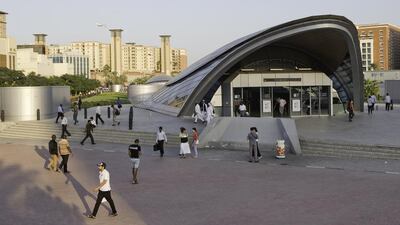The tightening of government budgets as revenue declines and the continued need for infrastructure development means public-private partnership (PPP) schemes are finally coming into fruition across the region, experts said.
Already, PPP is being used for a project by Dubai’s Roads and Transport Authority to redevelop Union Square and is being considered as a method for funding Route 2020 – the project to extend Dubai’s Metro from Jebel Ali to the Expo 2020 site – even though Dubai’s PPP legislation only came into force on November 19.
Olivier Crasson, an executive vice president for business development at the contractor Besix, said that PPP legislation had been in place in Kuwait for several years but few projects had emerged from the government body set up to oversee them.
He argued that the fact that Dubai had moved so quickly meant many more projects were likely to follow.
“Here, one of the objectives of the law is to reduce pressure on public spending,” said Mr Crasson. “The price of a barrel [of oil] will help. It will naturally accelerate the process for PPPs to exist on a wider scale in the region.”
He said that there were a number of schemes, including projects at Al Maktoum Airport, the site of a planned US$32 billion expansion, where “alternative methods of finance” such as PPPs and projects financed by contractors through export credit agencies from their country of origin were likely to play a part.
Robin Herzberg, the managing director of private finance at the UK contractor Carillion, which has already used UK government funding to build the first phase of the Dubai Trade Centre District, said that it is interested in pursuing PPP schemes in the region, although there have been limited opportunities so far.
“Certainly, we have a perception that PPPs will come in the Middle East, but we have had that for a little while. I think we’ve been watching this space for years.”
Maarten Wolfs, an infrastructure finance leader at PwC in the region, said that forms of PPP had been used in the Arabian Gulf for years but largely only in power and water, where governments effectively guarantee them through purchase agreements.
Now, there is a more varied range of projects, he said.
Mr Wolfs said: “Kuwait is tendering schools, waste-to-energy plants and housing projects. Contractors are looking at private financing solutions for the Dubai metro, and Dewa and Adwea have launched renewable energy programmes. Saudi Arabia, Oman and Qatar are … keen to broaden the model.”
Ed Johnson, a project finance partner at the law firm Squire Paton Boggs, said: “Diversification of goods and services, and the delivery of those to a higher standard, is becoming more politically important to governments.”
mfahy@thenational.ae
Follow The National's Business section on Twitter


